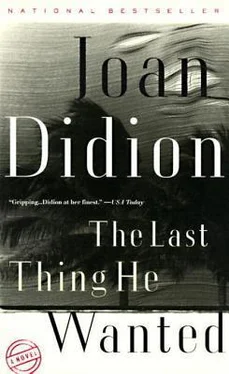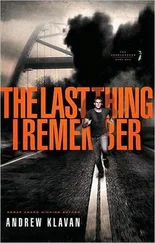“Wait just one minute,” he said when I finally managed to waylay him, in the corridor outside a hearing, at a moment when the television crews who normally functioned as his protective shield had been temporarily diverted by a rumor that the President’s wife had just entered the rotunda with Robert Redford. “I only speak to media on background.”
I said that background was all I wanted.
I said that I was trying to get as much perspective as possible on a certain incident that had occurred in 1984.
Mark Berquist’s eyes flickered suspiciously. Nineteen eighty-four had ended for him with the conclusion of that year’s legislative session, and was as distant now as the Continental Congress. To bring up 1984 implied that the past had consequences, which in situ was not seen as a useful approach. This unspoken suggestion of consequences was in fact sufficiently unthinkable as to drive Mark Berquist to mount a broad-based defense.
“If this has anything to do with the period of the financing of the 1984 reelection campaign you can just file and forget,” Mark Berquist said. “Since, and let me assure you that this is perfectly well documented, I didn’t even move over to the executive branch until after the second inaugural.”
I said that the period of the financing of the 1984 reelection campaign was not specifically the period I had in mind.
The period I had in mind was more the period of the resupply to the Nicaraguan contra forces.
“In the first place any reference to the so-called contra forces would be totally inaccurate,” Mark Berquist said. “In the second place any reference to the so-called resupply would be totally inaccurate.”
I suggested that both “contra” and “resupply” had become in the intervening years pretty much accepted usage for the forces and events in question.
“I would be extremely interested in seeing any literature that used either term,” Mark Berquist said.
I suggested that he could see such literature by having his staff call the Government Printing Office and ask for the February 1987 Report of the President’s Special Review Board, the November 1987 Report of the Congressional Committees Investigating the Iran-Contra Affair, and the August 1993 Final Report of the Independent Counsel for Iran/Contra Matters.
There was a silence.
“These are matters about which there has already been quite enough misrepresentation and politicalization,” Mark Berquist said then. “And to which I have no intention of contributing. However. Just let me say that anyone who uses the terms you used just betrays their ignorance, really. And to call it ignorance is putting the best face on it. Because it’s something worse, really.”
I asked what it really was.
“The cheapest kind of political bias. That’s what the media never understood.” He looked down the corridor as if for his missing press escort, then at his watch. “All right, one more shot. Your best question.”
“On the record,” I said, only reflexively, since whether it was on the record was of no real interest to me.
“Negative. No. You agreed to the ground rules. On background only.”
The reason it was of no real interest to me whether this was on the record or on background was because Mark Berquist would never in his life tell me the one thing I wanted to know.
The one thing I wanted to know from Mark Berquist was not at what point the target had stopped being Alex Brokaw. I knew at what point the target had stopped being Alex Brokaw: the target had stopped being Alex Brokaw when Elena McMahon left the Surfrider, did not go to the airport, lost her potential proximity to Alex Brokaw. The one thing I wanted to know from Mark Berquist was at what point exactly he had known that the target had changed from Alex Brokaw to Treat Morrison.
I asked Mark Berquist this.
One shot, best question.
Mark Berquist’s answer was this: “I can see you’ve bought hook, line and sinker into one of those sick conspiracy fantasies that, let me assure you, have been thoroughly and totally discredited and really, I mean time and time again. And again, calling this kind of smear job sick is putting the best face on it.”
More colliding metaphors.
On background only.
It played out, when the time came, very quickly. For the last nine of the ten days he had been on the island they had been meeting at the place she had found, an anonymous locally owned motel, not a chain, the chains were by then fully booked for USG personnel, a two-story structure near the airport so unremarkable that you could have driven to the airport a dozen times a day and never noticed it was there.
The Aero Sands Beach Resort.
The Aero Sands was on a low bluff between the highway and the beach, not really a beach but a tidal flat on which some fill had been thrown to protect the eroding bluff. The bluff ended where the highway curved down to the water just south of the Aero Sands, but on the bluff a hundred or so yards north of the Aero Sands there was a small shopping center, a grocery and a liquor store and a video rental place and outlets for sports supplies and auto parts, and it was in the parking lot of this shopping center that Treat Morrison would leave his car.
He had checked all this out.
He did not want his car seen in the Aero Sands parking lot, he did not want to be seen himself entering the exposed front door of her room.
He wanted to approach the Aero Sands from where he could assess it, have ample time to pick up on any official presence, anyone who might recognize him, anything out of the ordinary.
On the first of the nine days Treat Morrison came to the Aero Sands he brought the DIA agent, who took her statement and flew directly back to Washington, airport to Aero Sands to airport, no contact with the embassy.
On the following days Treat Morrison came to the Aero Sands alone.
At a few minutes before whatever time he told her he would be there she would leave open the sliding glass back door to her room and walk across the concrete pool area behind the motel. From a certain point just past the small pool it was possible to look north and get a partial view of the path on the bluff, and she always did, hoping he might be early, but he never was. She would nod at the woman who every evening pushed both an old man in a wheelchair and a baby in a stroller around the pool. Then she would continue on, down the dozen rickety wooden steps to what passed for the beach. There in the clear, there in the open space between the water and the bluff, Elena McMahon would wait in a place where Treat Morrison could see her as he approached.
As he had told her to do.
The point was that he believed he was protecting her.
He believed this right up to the instant, at seven-twenty on the evening of the tenth day he had been on the island, a day in fact on which he had made the final arrangement to take her back to the United States with him, take her in black via DIA and get the whole goddamn situation worked out in Washington, when it happened.
After it was over, after the flight to Miami during which he had been mostly incoherent and after the surgery and after the ICU, at some point when he was alone in a private room at Jackson Memorial, Treat Morrison remembered passing the man on the bluff as he walked from the shopping center to where he could already see her on the beach.
There had been nothing out of the ordinary about seeing the man on the bluff.
Nothing at all.
Nothing about the man on the bluff to signal an official presence, nothing to suggest someone who by recognizing him could place her beyond his protection.
Nothing.
He had already been able to see her on the beach.
Читать дальше












